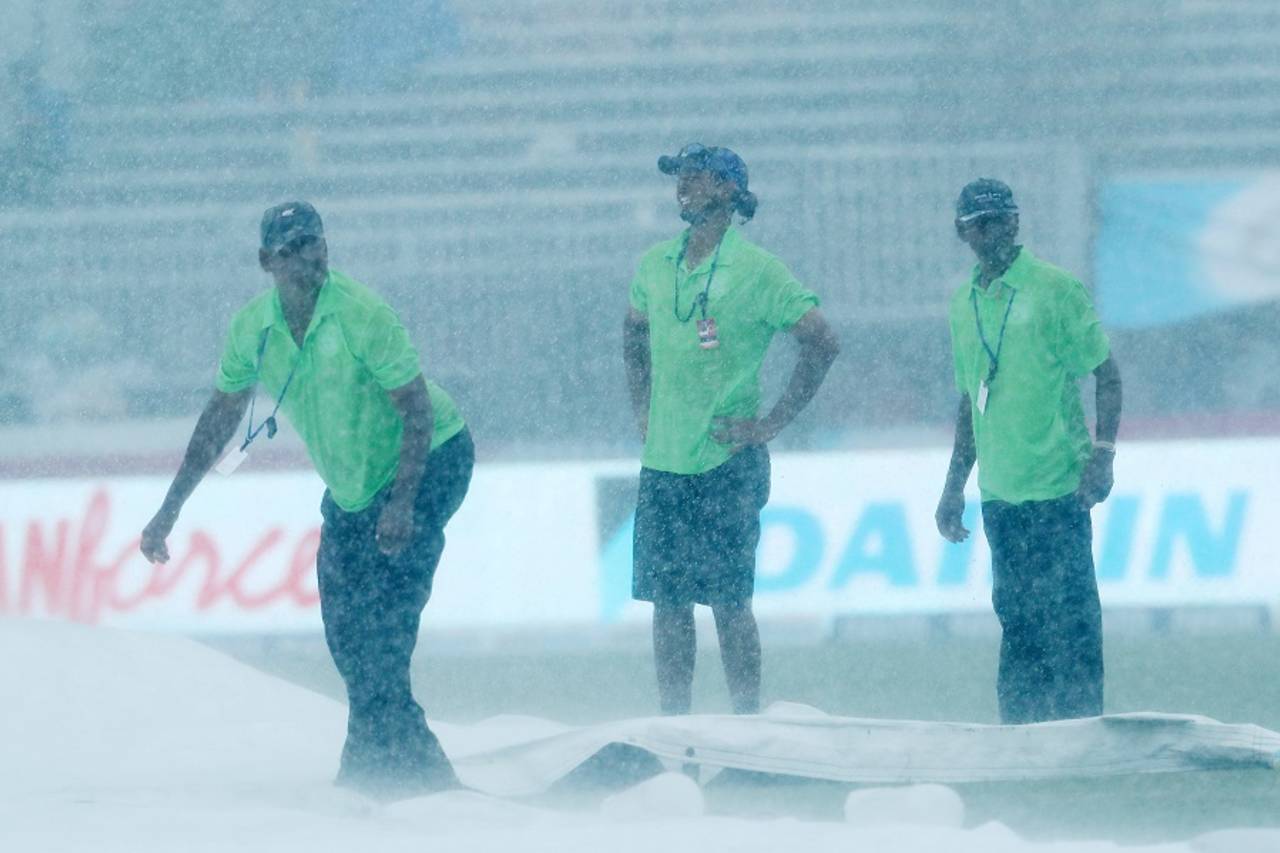ICC to look into Lauderhill fiasco
The ICC will discuss the events of the second India-West Indies T20 in Lauderhill in its annual workshop for match officials next month
Sidharth Monga
31-Aug-2016

Despite the rain that washed out the second India-West Indies T20 in Lauderhill, the match may have had a result had its start not been delayed for 'technical' reasons • BCCI
The ICC will discuss the fiasco in Florida in its annual workshop for match officials next month. A 40-minute delay at the start of the India-West Indies T20I in Lauderhill on Sunday, for "technical" reasons, robbed the match of a result with rain arriving two overs into the second innings. Had the match begun on time - conditions at the ground were perfect at the regulation start time - the match would have been past the halfway mark of its second innings. Only five overs in each innings are required to be bowled for a result in T20 matches.
"At next month's annual workshop, the match officials will be discussing a wide range of topics, including the second T20I in Florida," an ICC spokesperson confirmed to ESPNcricinfo.
The ICC playing conditions have guidelines for delays for only three reasons: rain, poor light, unfit playing surface. The match referee and umpires were left to make a subjective call when the request to delay the match was made to them by the two "competing members". The decision to delay the start was unprecedented, but the events may not have been unprecedented: there have been at least two instances in recent times when broadcasters have had issues, but play went on without delay on both occasions.
In Hobart on February 28, 2012, the ground lost power during the innings break of an ODI between India and Sri Lanka. With the daylight still holding up, the second innings began at the scheduled time of 6.35pm even if it meant the broadcasters couldn't show the first 3.4 overs of the chase. The power was restored before it became dark, and the match went on without delay.
A year before that, just before the start of an ODI series in India, the then host broadcasters Neo Sports had a run-in with Prasar Bharati, the government agency responsible for uplinking live telecasts out of India. The match began on time even though Neo lost out on broadcasting the first 2.5 overs of the match.
The ICC confirmed that its match officials had made the final decision to delay the start. "Taking into account the strategic considerations behind the staging of the two international matches in Florida," the ICC said, "the match officials, on the request of the two competing members, agreed to tweak the playing hours to allow the host broadcaster to overcome the technical difficulties."
Such decisions are usually made by the match referee in consultation with the umpires. Ranjan Madugalle was the match referee for the Lauderhill match; the on-field umpires were Joel Wilson and Leslie Reifer and Nigel Duguid the third umpire. The "strategic considerations" here could allude to the objective of spreading the game in a new market. In fact, when the ICC sanctioned these matches, it welcomed them as capable of developing cricket in the USA. "The ICC has approved these matches because we believe they can play a significant role in the long term development of cricket in the USA and our ongoing efforts to unify the USA cricket community," the ICC CEO Dave Richardson had said in a release.
Sidharth Monga is an assistant editor at ESPNcricinfo